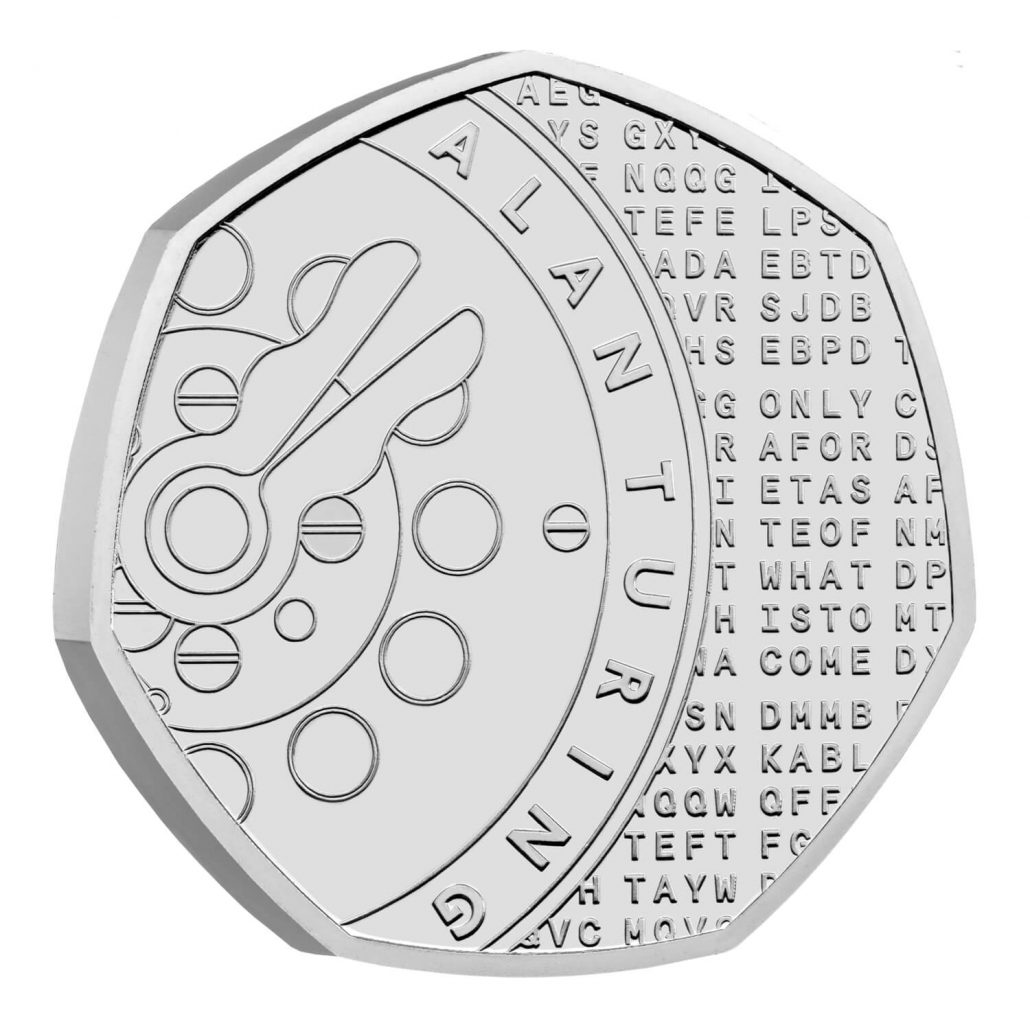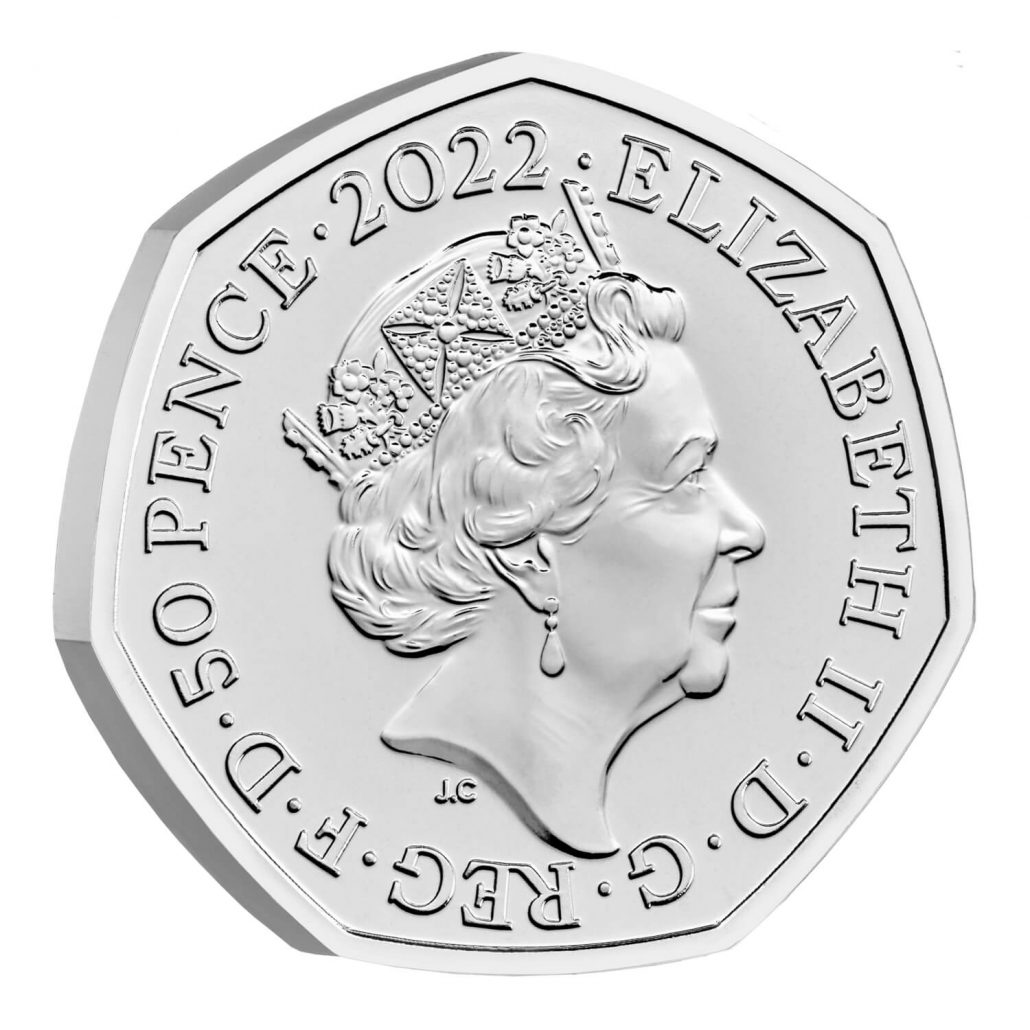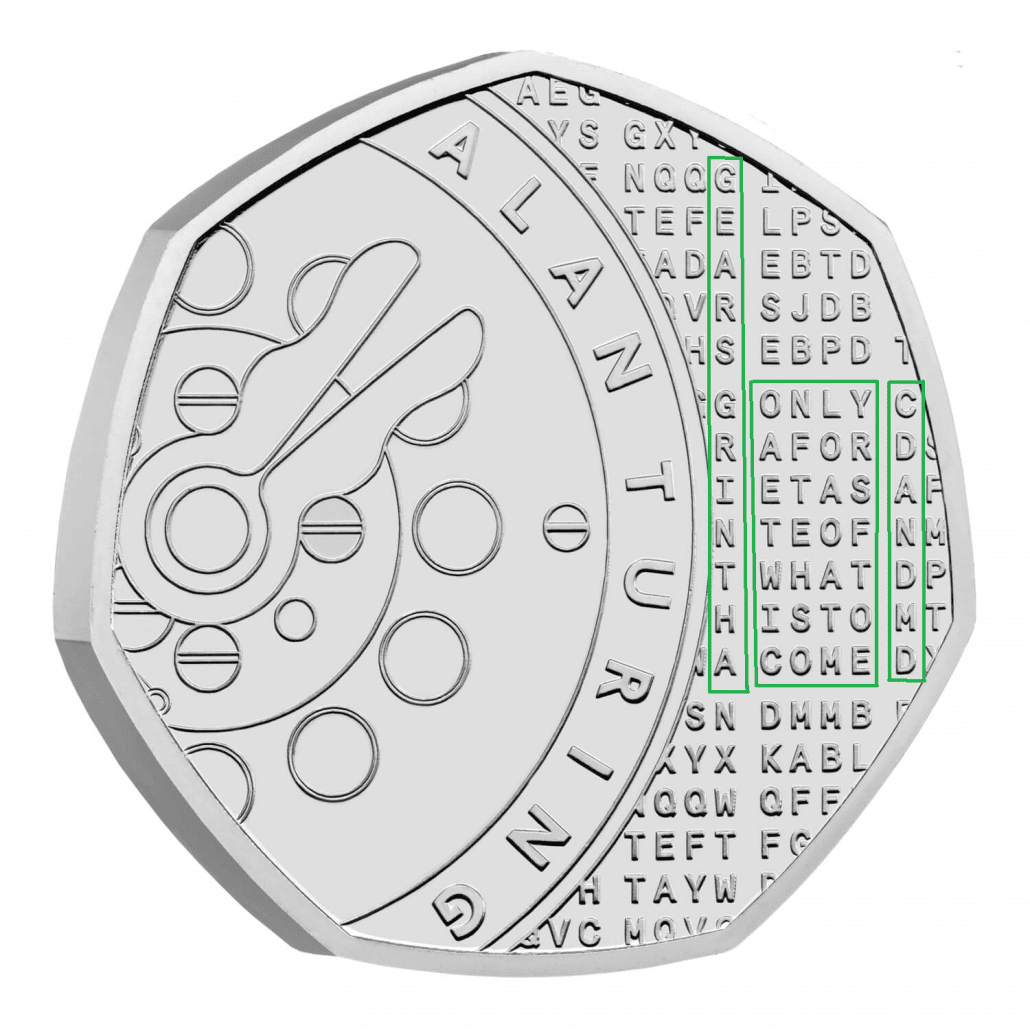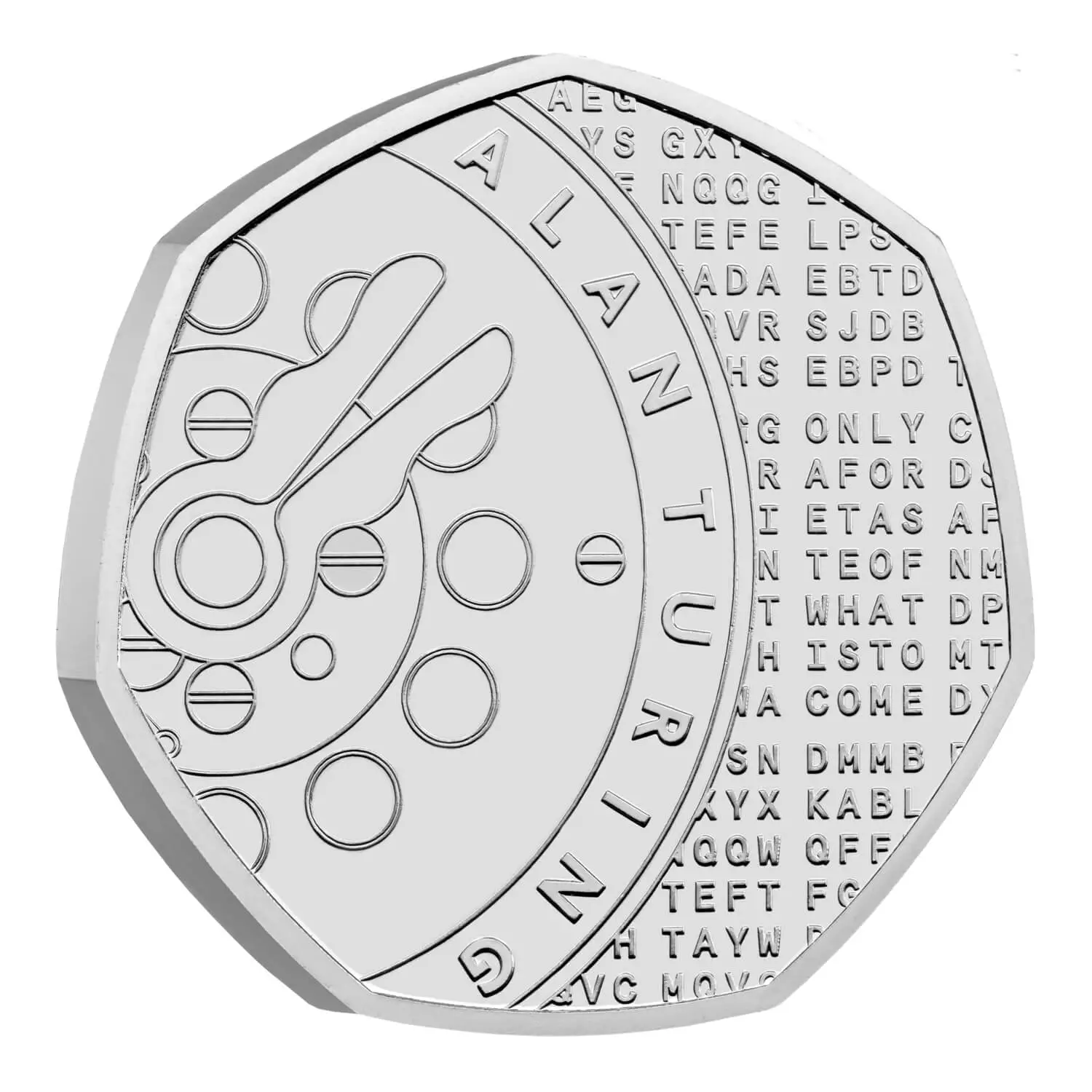The Alan Turing 50p is one of the most recent 50p coins issued by the Royal Mint and is the final coin in a series that celebrates scientific discoveries by British scientists.
With an eye-catching design that features several hidden codes, there is a lot to unpack with this 50p – so let’s get straight into it.
About The Coin
The Alan Turing 50p was released in July 2022 and commemorates the life and works of Alan Turing, an English mathematician and computer scientist who is perhaps most well known for his efforts in decoding messages during World War 2.
Turing is known as the father of theoretical computer science and artificial intelligence and had a profound impact on these fields during his life.
This 50p is the sixth and final coin of the Innovation in Science series, a collection of 50p coins released by the Royal Mint to commemorate scientific discoveries made by British scientists and inventors.
The coins in the series are shown in the table below alongside their release dates:
| Coin | Release Date |
| Stephen Hawking 50p | 2019 |
| Rosalind Franklin 50p | 2020 |
| John Logie Baird 50p | 2021 |
| Charles Babbage 50p | 2021 |
| Discovery of Insulin 50p | 2021 |
| Alan Turing 50p | 2022 |
Will The Alan Turing 50p Enter Circulation?
The coin is unfortunately not intended for circulation and is instead available in several different uncirculated finishes. These include brilliant uncirculated, silver proof, silver proof piedfort and gold proof.
The only 50p issued in 2022 that entered circulation is the Platinum Jubilee 50p which has a maximum mintage set at 5,000,070.
How Much Is The Alan Turing 50p Worth?
Each version of the Alan Turing 50p is available to purchase directly at the Royal Mint at the time of writing this article.
The values are £10.00 for brilliant uncirculated, £57.50 for silver proof, £102.50 for silver proof piedfort and a whopping £1,150 for gold proof.
Once these are sold out you can expect the prices to increase through the years.
Design

The reverse design of the coin features a depiction of a turing machine towards the left, with the inscription ‘ALAN TURING’ around the edge of this design.
On the right hand side there a several letters which contain 3 hidden codes. If you get stuck trying to find them we have an image later in this article that identifies them, so don’t worry!

The obverse design shows the fifth portrait of her Majesty designed by Jody Clark.
This was first revealed to the public in 2015 and has been used on the obverse of all coinage since then. Clark’s initials can be seen below the portrait, and the inscription around the edge reads ‘ELIZABETH II · D · G · REG · F · D · 50 PENCE · 2022’.
Alan Turing 50p Hidden Code
On the reverse design of the Alan Turing 50p there are three hidden codes that you probably won’t notice at first glance.

The first of these is a what3words address, which is highlighted in the image above and reads ‘GEARSGRINTHAN’. For those unfamiliar with what3words, it is a universal way of describing any location using three words, and this combination leads to the Kennedy Building at the University of Cambridge, where Turing studied.
The next hidden message is to the right and reads ‘ONLY A FORETASTE OF THAT IS TO COME’ which is a famous quote by Turing made in the Times in june 1949.
Next to this is the last hidden message which reads ‘CDANDMD’. This references the designers of the coins Christian Davis and Matt Dent.
